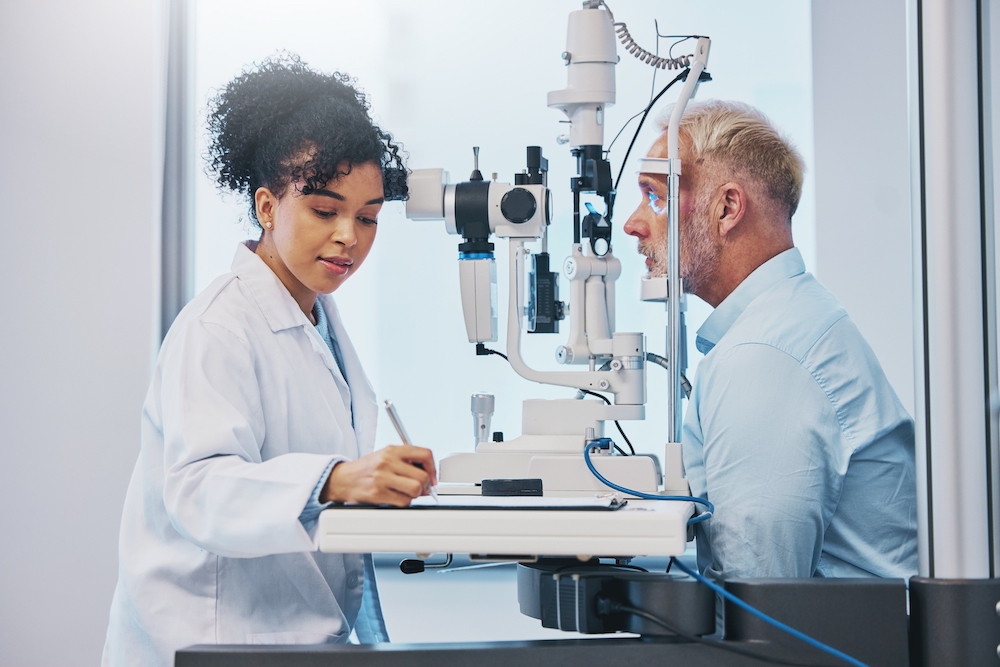
Macular degeneration is an eye condition that impacts the retina's central portion that gives detailed and sharp vision. It is a progressive disease and is the top vision loss cause for individuals over 60.
Macular degeneration causes the retina's central part—the macula—to deteriorate. As a result, those experiencing it lose central vision. It can lead to blindness in some cases. Read on for more information about macular degeneration.
Types of Macular Degeneration
Macular degeneration is comprised of two main types—dry and wet macular degeneration. The most common form which accounts for over 90% of cases is dry macular degeneration. It results from the gradual hardening and thinning of the retina's central part. It results in tiny, yellow deposits that can affect the functioning of your macula. These deposits, called drusen, can also cause the loss of your central vision gradually.
Wet macular degeneration is the more severe type of this condition. It results when new blood vessels grow underneath your retina. They then leak blood and fluid, causing damage to your macula and quick vision loss. It is much less common, accounting for around 10% of cases.
Symptoms
The severity and type of macular degeneration an individual has can determine the symptoms. You are likely to have no symptoms during the early stages. But with the progression of the condition, you may experience the following:
Distorted or blurred central vision
An empty or dark area in your central vision
Difficulty recognizing faces or reading
Difficulty adapting to low light
A dark or empty area in your central vision
Risk Factors
Below are some of the risk factors that can lead to macular degeneration:
Age - The condition commonly affects individuals above age 60
Family history - You are more likely to develop macular degeneration if it runs in your family
High blood pressure - High blood pressure increases your chances of developing macular degeneration. It can damage the blood vessels in your eyes
Smoking - You increase your risk of macular degeneration if you smoke
Poor diet - Diets low in vegetables and fruits increase your risk for macular degeneration
Obesity - Being obese heightens your chances of developing macular degeneration
Race - The condition commonly affects people of the White and African-American race more
Early Detection
Diagnosing macular degeneration during its early stages can be difficult. Most of its symptoms may not be apparent or may be subtle.
Regular eye exams help detect vision changes that could point to macular degeneration. Your eye doctor can perform various tests to check your retina's health and vision.
Treatment
The severity and type of the condition will determine the treatment option. Dry macular degeneration has no cure. You can only slow its progression via lifestyle changes and taking supplements.
Wet macular degeneration has various treatment options like anti-VEGF injections that stop new blood vessels from growing. It reduces the chances of fluid leaking. Photodynamic therapy destroys abnormal blood vessels by using a special laser. Your doctor may suggest surgery to remove fluid or blood from your eyes. Doing so will help reduce the risk of damaging your macula further.
For more about macular degeneration, contact Special Eye Care at our Camp Springs, Maryland office. Call (301) 298-3241 to schedule an appointment today.




